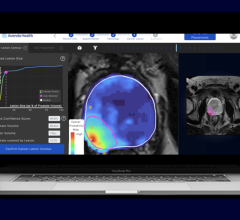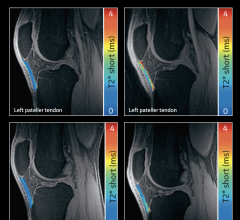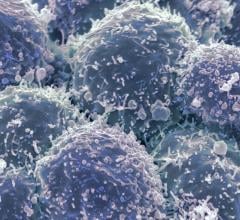Expression of two different proteins taken from primary tumor biopsies is highly associated with the spread of breast cancer to nearby lymph nodes, according to a new study. Researchers say this protein profile could help identify at an early stage those patients whose disease is likely to metastasize.
The study, published in today's issue of Cancer Research, found that over-expression of one unidentified protein and under-expression of another is 88 percent accurate in identifying breast cancer that has spread in a group of 65 patients, compared to an analysis of lymph nodes and outcomes.
In all, 24 patients (37 percent) were found to have cancer in their nodes and 41 patients (63 percent) were node negative. To predict lymph node metastasis, the investigators identified biomarkers that distinguished between the tumor profile with paired positive and negative nodes. Two protein peaks associated with lymph node metastasis were identified. Specifically, over-expression of protein peaks at 4,871 Da (which represents the molecular weight of the protein) and under-expression of a protein peak at 8,596 Da were highly predictive of lymph node metastasis.
The study was funded by the California Breast Cancer Research Program of the University of California, the Avon Foundation, and the Leslie and Susan Gonda Foundation. Investigators from Saint John’s Health Center, Joyce Eisenberg Breast Center, in Santa Monica also contributed to the study.


 July 25, 2024
July 25, 2024 








